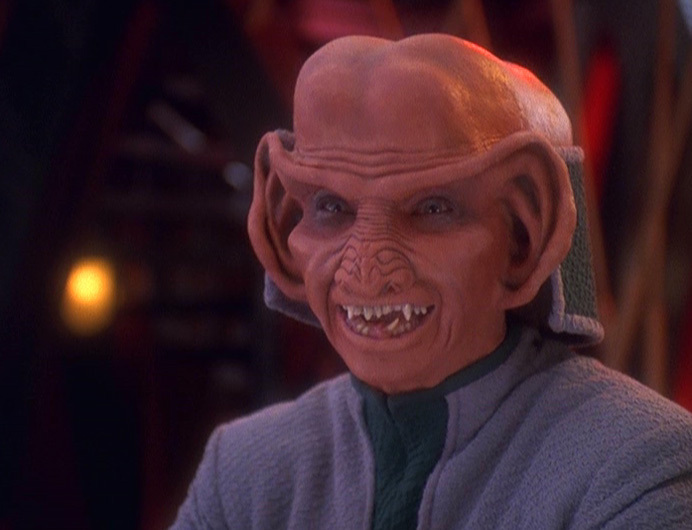A who's who of Cardassian officers and Bajoran collaborators (Darhe'el, for example) were persona non grata at best, and arrested to face charges of war crimes at worst. I can imagine that, if there were no specific incidents which could be linked to Gul Dukat, perhaps he and other Cardassian officials would be tolerated... But as he was the head of the occupation, I'm not sure this makes sense.
Is the best explanation that this is merely a matter of convenience to normalize relations between Bajor and Cardassia, or is there a plausible justification for his semi-frequent visits to DS9 and/or Bajor in the early seasons? What real historical examples are analogous to his relationship with the Bajoran (provisional) government?
Edit: 'Bajor' for the planet, not 'Bajoran'
The political situation in the region is incredibly complicated - if Bajor is interested in prosecuting, they risk a renewed conflict with Cardassia, which neither they nor the Federation particularly want. On top of that, many Bajorans are skeptical of the Federation and its intentions, at least in the early days.
Plus...did Dukat ever "visit" DS9 (as in, physically board the station) without explicit authorization from the command staff?
Technically he did in "Civil Defense" when they accidentally triggered the counter-insurgency subroutines on the station. Although he himself ended up getting trapped on the station that was about to blow up so he was stuck helping them disable it.
Thanks for that - I thought of "Civil Defense" but couldn't remember the exact circumstances of that pop-in.
The Bajor-Cardassia peace talks occur just six episodes later, so it's easy to imagine that the peace process was well underway by that point.
And, of course, Dukat was there to "help".


